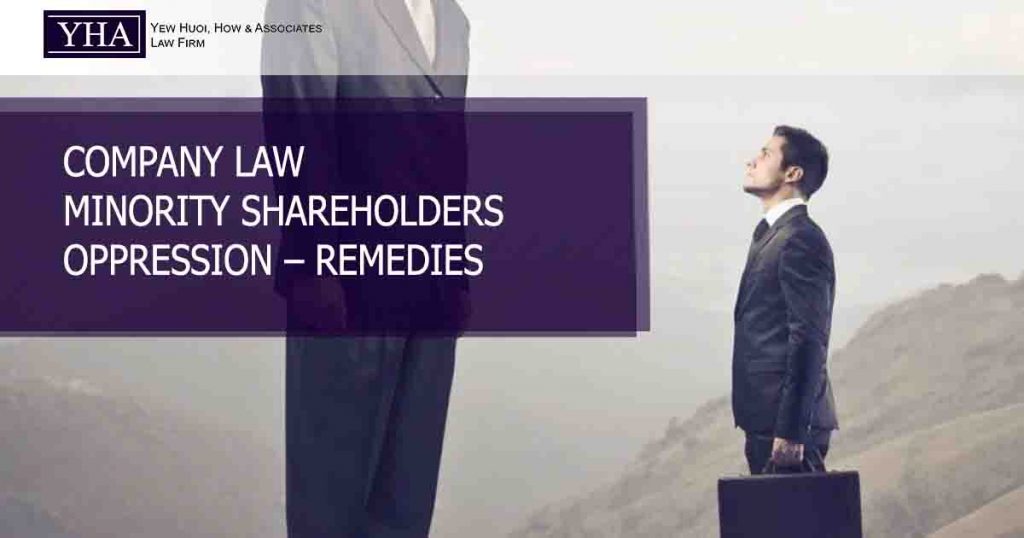Q: I am a minority shareholder in Company X. The majority have passed a resolution to increase the number of shares which effectively dilute my shareholdings. Thereafter, the majority passed resolutions to transfer substantial assets of the company in favour of the majority shareholders-controlled affiliated company. What can I do?
You may consider filing in an application for minority oppression.
What is Minority Shareholder?
Minority shareholders usually refer to those who hold less than 50% shares of the company or a party who does not have control over the fate and direction of the company.
Conduct that constitutes ‘Oppressive Conduct’
- Majority shareholders engaged in conduct that is oppressive, prejudicial, or discriminatory against minority shareholders.
- Oppression often occurs when majority shareholders make decisions that are in their own interest while suppressing the interest of minority shareholders.
What are the Legal Protections from Oppression of Minority Shareholders in Malaysia?
- There is a wide range of relief under Section 346 of the Companies Act 2016 (“CA 2016”) for minority oppression.
- Any member of the company who is oppressed may apply to the Court to:-
- direct, prohibit, cancel or vary any transaction or resolution;
- regulate the conduct of the company in the future;
- require other members to purchase shares and debentures of the company;
- in case of purchase of shares, provide for a reduction of capital of the company; or
- wind up the company.
What’s the test for minority oppression?
The court will consider whether reasonable directors possessing the skills, knowledge, acumen and experience of directors would have decided that a proposed course of action was unfair.
Note of Caution
If you intend to sign up as a minority shareholder of a company, you should bear in mind the “majority rule”. The general principle for governance of the companies is the majority rule. The majority shareholders have influence in the ordinary decision-making process. The will of the majority would prevail. Unless there exist circumstances where the powers of the company may be exercised in a manner that is commercially unfair to minority.

